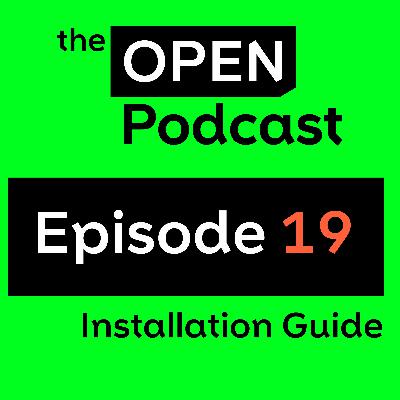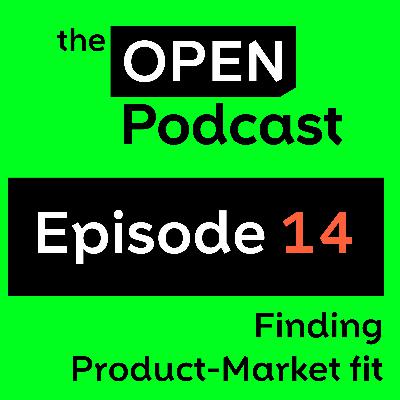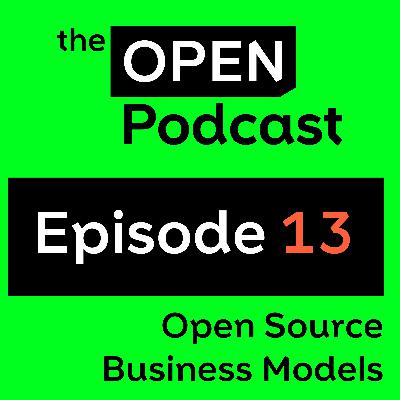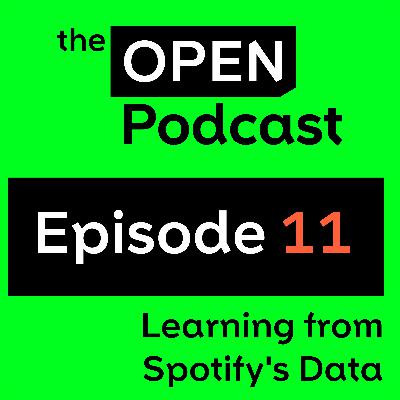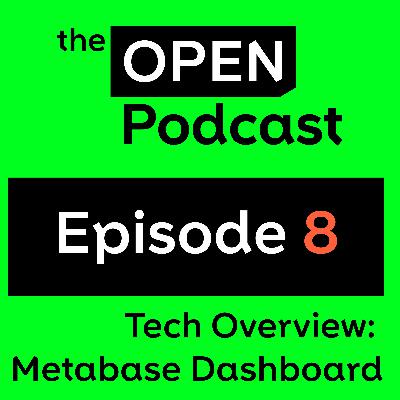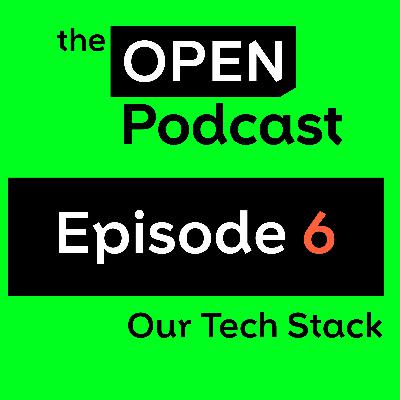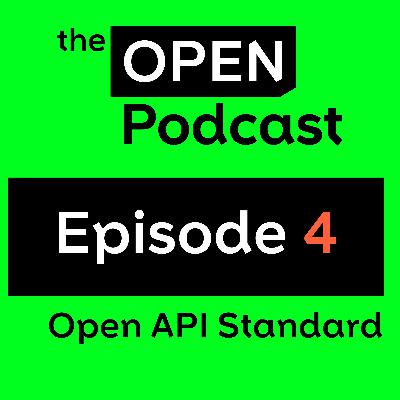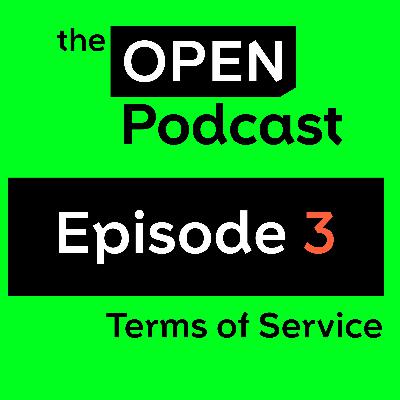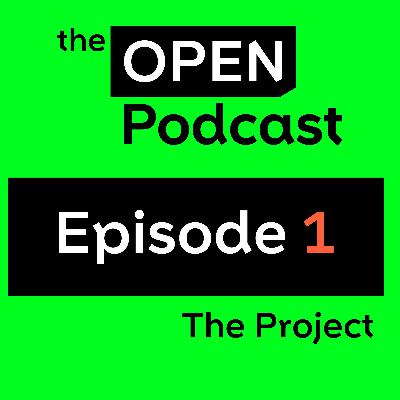Discover TOPP - The Open Podcast Podcast
TOPP - The Open Podcast Podcast

TOPP - The Open Podcast Podcast
Author: RISC_OBFUSCATED
Subscribed: 0Played: 0Subscribe
Share
© RISC_OBFUSCATED
Description
“The Open Podcast Podcast”, a weekly show about the Podcast Ecosystem and our attempt to build an open source analytics platform for podcast hosts. We believe that the Podcast ecosystem needs to remain open. Contrary to what some proprietary platforms believe, we think people value freedom and open standards. We believe that Podcast hosts can grow an audience without locking people in or being dependent on the big players. In this podcast we talk about ideas on how to make the podcast ecosystem more open and how we actively contributing to it by working on our project "Open Podcast"
11 Episodes
Reverse
How did you like this episode?👍 👎Learn how to set up Open Podcast yourself; on-premise or in the cloud.If you’re hosting a podcast you know how important it is to learn about your audience to grow the channel. And chances are you listen to this podcast to learn more about just how to do that.The start of the year is a great time to start something new, so today we give you a complete walkthrough on how to set up our Open Podcast analytics platform yourself. No more excuses. ;)LinksInstallation instructions: https://openpodcast.dev/#/install HostsMatthias Endler (https://mastodon.social/@mre) Wolfgang Gassler (https://twitter.com/schafele)FeedbackEmail: echo@openpodcast.dev Twitter: https://twitter.com/OpenPodcastDev CreditsThe theme music is U.S. Army Blues - Kelly’s Number and is licensed under Public Domain Mark 1.0 License. How did you like this episode?👍 👎
Finding customers for open source tools is important for the success of the project.How do developers find customers for their tools? Do they just write code and wait for customers to jump on their product? Or do they talk to potential customers before they write their first line of code?If you build an app that is not just a hobby project, customer acquisition is one of the most important things to do to ensure long term success. But customer acquisition is not easy; it takes time and effort.In this episode, we talk about potential marketing channels for open source tools, how to find interview partners, and how to get feedback from potential customers. We will share our experience of building an application for podcast hosts and how we approached the market. We will share our learnings and insights and how we built a network of potential customers and partners.LinksOpen Podcast: https://openpodcast.dev HostsMatthias Endler (https://mastodon.social/@mre) Wolfgang Gassler (https://twitter.com/schafele)FeedbackEmail: echo@openpodcast.dev Twitter: https://twitter.com/OpenPodcastDev CreditsThe theme music is U.S. Army Blues - Kelly’s Number and is licensed under Public Domain Mark 1.0 License.
We talk about the different business models for open source projects and how we could apply them to our podcast analytics project.There are many trade-offs to consider when choosing a business model for an open source project. We discuss the pros and cons of the different models like open core, consulting, and contracting. Along the way we look at some examples of successful open source projects and how they monetize their work.We also explain the open core model, which describes business models where the core of the project is open source, but some features are only available in a paid version. We discuss the advantages and disadvantages of this model and how we could apply it to our podcast analytics project.LinksElasticsearch license change: https://www.elastic.co/pricing/faq/licensing Plausible: “How we made it to 1 million MRR: https://plausible.io/blog/open-source-saas Cal.com open business data: https://cal.com/openHostsMatthias Endler (https://twitter.com/matthiasendler) Wolfgang Gassler (https://twitter.com/schafele)FeedbackEmail: echo@openpodcast.dev Twitter: https://twitter.com/OpenPodcastDev CreditsThe theme music is U.S. Army Blues - Kelly’s Number and is licensed under Public Domain Mark 1.0 License.
What Podcasters can learn from Spotify’s dataSpotify’s data is a goldmine for podcasters. It can help you understand your audience, improve your content, and grow your audience. Here are some of the most important things you can learn from Spotify’s data.In the last episode, we talked about the Spotify API and how we access and store the data.This time we pick up where we left off and talk about what you can do with the data and why it's important to own your data.We expose the data in a SQL database and use metabase to visualize the data. (See also episode #8 for more on metabase, redash, grafana, and superset.)With the data in a SQL database, we can do more powerful things like calculating averages and comparing episodes through SQL custom queries.It's even more powerful when you store historical data. You can then correlate the data with other data sources (e.g. from different podcasts or hosts). It’s hard to retrieve historical data after the fact.Users want to know if they have improved over time and compare between episodes. All of this is possible with historical data and graphs that are easy to understand.LinksOur Open Podcast documentation: https://openpodcast.devOpen Podcast on Github: github.com/openpodcastHostsMatthias Endler (https://twitter.com/matthiasendler) Wolfgang Gassler (https://twitter.com/schafele)FeedbackEmail: echo@openpodcast.dev Twitter: https://twitter.com/OpenPodcastDev CreditsThe theme music is U.S. Army Blues - Kelly’s Number and is licensed under Public Domain Mark 1.0 License.
In this episode, we talked about the Spotify for Podcasters API and how to use it to extract data from Spotify. We also talked about the different data types that can be extracted and how to store the data in a MySQL database.The API consists of internal endpoints for fetching metadata, episodes, and detailed streams, listeners, followers, and aggregate data. To use the API we need to fetch the authentication token for a user. Notably this is not the user's Spotify account.The data can be stored in a MySQL database. We can then use the data to answer complex questions such as "What topics perform the best?" and "What are the preferences of specific age groups?" This is much more flexible than using official Spotify for Podcasters dashboard. Furthermore the data will be available for further analysis for an arbitrary time period and can be used to create a custom dashboard.LinksExplanation on how to retrieve the Spotify cookie for fetching data: https://den.dev/blog/unlocking-spotify-podcast-data/ An OSS library for fetching Spotify Podcast data and more: https://github.com/wdr-data/wdr-okr/ Our code: https://github.com/openpodcast HostsMatthias Endler (https://twitter.com/matthiasendler) Wolfgang Gassler (https://twitter.com/schafele)FeedbackEmail: echo@openpodcast.dev Twitter: https://twitter.com/OpenPodcastDev CreditsThe theme music is U.S. Army Blues - Kelly’s Number and is licensed under Public Domain Mark 1.0 License.
The final part of our tech stack description. This time we discuss the visualization part based on Metabase.For any analytics platform, the decision on how data gets visualized is a crucial one. It is what users will interact with first and has an important impact on how the quality of a data product is perceived. We discuss the pros and cons of the most popular visualization tools and how they compare to Metabase, which is the tool we settled on for Open Podcast.Metabase is a popular open source data visualization tool that integrates well with SQL databases. For our hosted variant of Open Podcast, we use Metabase to visualize the data stored on Planetscale.Before Metabase we used Posthog, which is also great, but doesn't now allow writing custom SQL queries. We also tried Grafana, which is a great tool for time series data, but it also doesn't integrate well with SQL databases and is primarily meant for monitoring solutions.Other competitors we discuss are Superset, Redash, and Grafana. We also briefly touch on the topic of self-hosted vs. cloud-based solutions.LinksHow to create dashboards with metabase https://www.metabase.com/docs/latest/dashboards/introduction https://superset.apache.org/https://posthog.com/https://grafana.com/ https://redash.io/ HostsMatthias Endler (https://twitter.com/matthiasendler) Wolfgang Gassler (https://twitter.com/schafele)FeedbackEmail: echo@openpodcast.dev Twitter: https://twitter.com/OpenPodcastDev CreditsThe theme music is U.S. Army Blues - Kelly’s Number and is licensed under Public Domain Mark 1.0 License.
Another technical episode; this time about our realtime analytics forwarder/proxy written in Rust.Podcast creators want realtime data about the performance of each episode. The big platforms usually only provide aggregated data with some delay whereas the hosting platforms like Podbeans or Redcircle store the data in proprietary formats that oftentimes can’t be exported or gets filtered and put behind paywalls through pro-accounts.In contrast, our proxy works with any major platform and stores the data in a machine-readable format that can easily be exported. It is written in Rust and runs as an edge-worker on Cloudflare Workers, but it can also be run on a standalone server.We’ll talk about the architecture of the component and the tradeoffs we made while building it. Linkshttps://www.rust-lang.org https://codilime.com/blog/why-is-rust-programming-language-so-popular/https://blog.cloudflare.com/workerd-open-source-workers-runtime/https://workers.cloudflare.com/ HostsMatthias Endler (https://twitter.com/matthiasendler) Wolfgang Gassler (https://twitter.com/schafele)FeedbackEmail: echo@openpodcast.dev Twitter: https://twitter.com/OpenPodcastDev CreditsThe theme music is U.S. Army Blues - Kelly’s Number and is licensed under Public Domain Mark 1.0 License.
In this episode we talk about the tech stack of Open Podcast. We discuss the reasons why we chose the technologies we use and why we chose to use them. We also talk about the advantages and disadvantages of the technologies we use.We require all tools to be open source and self-hostable. We also require that the tools are easy to set up and easy to use. We also require that the tools are scalable and have solid documentation.Today we start with the database, which is based on SQL. We use MySQL because many devs have a lot of experience with MySQL.We evaluated a few options and we'll explain why we chose Planetscale over other options.LinksPlanetscale MySQL Service https://planetscale.com Event Storage and Analytics https://posthog.com SQLite https://www.sqlite.org/index.html Cloudflare D1 SQLite based DB https://blog.cloudflare.com/introducing-d1/ HostsMatthias Endler (https://twitter.com/matthiasendler) Wolfgang Gassler (https://twitter.com/schafele)FeedbackEmail: echo@openpodcast.dev Twitter: https://twitter.com/OpenPodcastDev CreditsThe theme music is U.S. Army Blues - Kelly’s Number and is licensed under Public Domain Mark 1.0 License.
In this episode we talk about the Open API for Podcasts project and how you can get involved.Last week we talked about vendor lock-in and how it is a problem for podcasters.We thought it would be a good idea to elaborate on this topic and talk about our proposed solution, an Open API for Podcasts.We talk about the motivation behind the project, what the project is trying to achieve and what the next steps are. We also talk about the RFC process and how you can get involved.Linkshttps://github.com/wdr-data/wdr-okr/HostsMatthias Endler (https://twitter.com/matthiasendler) Wolfgang Gassler (https://twitter.com/schafele)FeedbackEmail: echo@openpodcast.dev Twitter: https://twitter.com/OpenPodcastDev CreditsThe theme music is U.S. Army Blues - Kelly’s Number and is licensed under Public Domain Mark 1.0 License.
In this episode we learn about the licensing strategies of Anchor (which belongs to Spotify) and how it affects podcasters.While Anchor is a great platform for beginners, there are some caveats to be aware of before signing up. The reason is that Anchor has a non-exclusive license, which means that they can use your content in any way they want, including selling it to third parties. They can also use your content to promote the service, which is a bit of a double edged sword. On the one hand, it's great that they're promoting the service, but on the other hand, they're using your content to do it -- at no additional cost to them.Furthermore, if you want to move your podcast to another platform, you need to update all links in Spotify, Apple Podcasts, Google Podcasts, etc.As an alternative our Proxy allows you to change the URL transparently and clients won’t see a change.In general it's a good idea to do some research before signing up for a hosting and to think about open source platforms which can be hosted on your own and provide statistics which can be exported.LinksAnchor Terms of ServiceOpen Podcast on GithubHostsMatthias Endler (https://twitter.com/matthiasendler) Wolfgang Gassler (https://twitter.com/schafele)FeedbackEmail: echo@openpodcast.dev Twitter: https://twitter.com/OpenPodcastDev CreditsThe theme music is “Orbiting A Distant Planet'' by Quantum Jazz and is licensed under a Attribution-ShareAlike 3.0 International License.
Welcome to “The Open Podcast Podcast”, a weekly show about the Podcast Ecosystem and our attempt to build an open source analytics platform for podcast hosts.In this episode we introduce the Open Podcast project and explain why we think it’s important to have open alternatives to existing podcast hosting platforms.We believe that the Podcast ecosystem needs to remain open. Contrary to what some proprietary platforms believe, we think people value choice and freedom.We want to counter fragmentation, paywalls, and limits.We believe that Podcast hosts can grow an audience without locking people in or being dependent on the big players.If anything we should work on expanding the RSS standard to support more functionality.Linkshttps://twitter.com/chrismessina/status/1384572264566255619Michael Migano from Anchor (which belongs to Spotify): “Podcasting, RSS, Openness, and Choice“. https://mignano.medium.com/podcasting-rss-openness-and-choice-50223b1f16d0Media Tech Lab Grant: https://www.media-lab.de/en/programs/media-tech-lab CopyrightThe theme music is “Orbiting A Distant Planet'' by Quantum Jazz and is licensed under a Attribution-ShareAlike 3.0 International License.HostsMatthias Endler (https://twitter.com/matthiasendler) Wolfgang Gassler (https://twitter.com/schafele)FeedbackEmail: echo@openpodcast.dev Twitter: https://twitter.com/OpenPodcastDev


